You live outside the built-up area or on the outskirts of the municipality of Gorinchem, Hardinxveld-Giessendam or Molenlanden, such as in the polder or on the dyke. You have three ground containers for VGF, PMD and paper and a chipped residual waste container. Together with the municipalities, we want to encourage and help residents to separate less waste and even better. Good for the environment and your wallet.
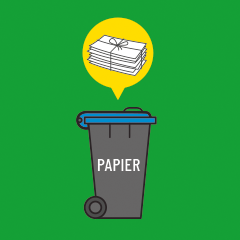
Paper container at your house
You can dispose of paper and cardboard in the (blue) container for paper. Make cardboard small, so more can fit in the container.
> Find out what can and cannot go with the waste paper
Pmd container at your home
Throw plastic packaging, metal packaging and drink cartons (pmd) in the (orange) container for pmd. Make sure the packaging is as empty as possible. There is no need to rinse them.
> Find out what can and cannot go with the pmd
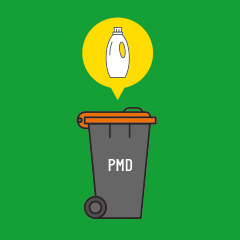
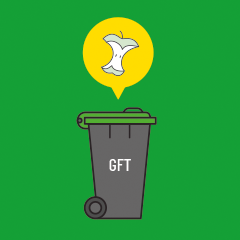
GFT container at your home
For food waste and vegetable, fruit and garden (VGF) waste, use the (green) VGF container. Do you want to use bags? Only compostable bags with the Kiemplant logo or OK-compost logo can be used for VGF waste.
> Find out what can and cannot go with the GFT
Chipped residual waste container at your home
You have a chipped container of 240 litres for your residual waste. The chip has a unique number linked to your address. Special equipment in our trucks reads the chip every time it is emptied. For every time you empty your residual waste container, you pay a recycling fee. The better you separate your waste, the less residual waste, the less you pay.
> Find out how to get more out of your residual waste
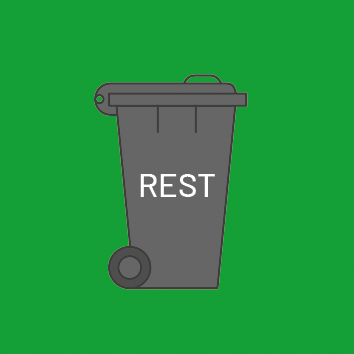

Your personal waste calendar
Install our handy app on your smartphone. This way, you always have all waste information to hand. In the app, you will find your personal waste calendar. You can also set it to notify you when one of your containers is ready for disposal. Then you will never forget.
> Find out more about the handy Waardlanden app
Collection container for glass in cores
Dispose of all glass containers such as bottles and jars in the glass collection container in the neighbourhood or at a shopping centre. Caps and lids can stay on. These are separated from the glass at the factory. Make sure the containers are empty. Small leftovers are also no problem. Rinsing is therefore not necessary.
> Find out what can and cannot reach the glass
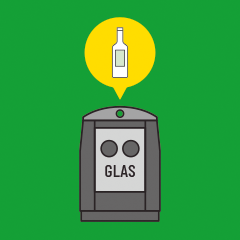
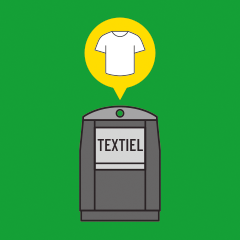
Collection container for textiles in cores
You can dispose of clean and dry textiles in tied-up bags in the collection container for textiles in the neighbourhood, at a shopping centre or environmental centre. Textiles include clothes, curtains and bedding such as sheets and duvet covers. Belts, bags and shoes can also be included. Worn and broken fabrics can also be included. These can also be recycled.
> Find out what can and cannot go with textiles
To the waste disposal site with the environment card
At our environmental centres, you can bring in over 15 waste and raw materials separately as often as you like for reuse and recycling. Only bulky garden waste, rubble, wood, gypsum, bitumen and bulky household waste are subject to a fee if you bring them more than three times a year.
> Find out which raw materials you can dispose of separately at the waste disposal site
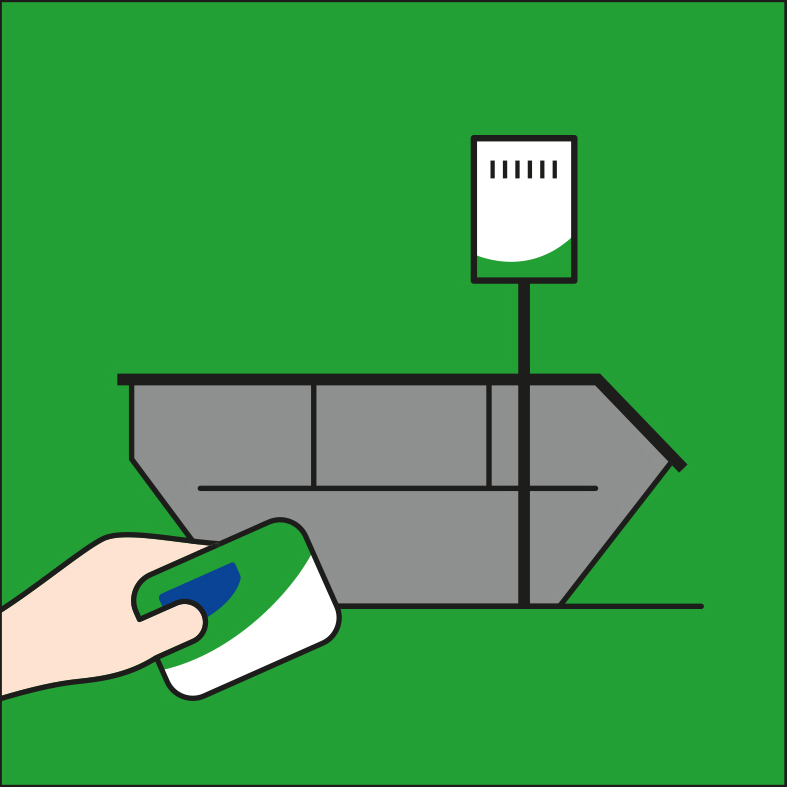
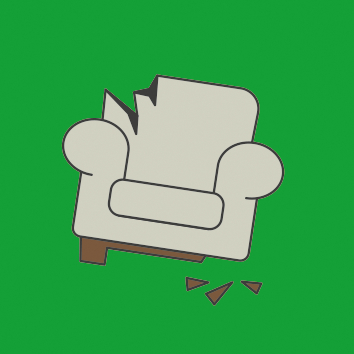
Bulky waste collection
You can also choose to have your bulky household waste, white and brown goods collected from your home. You pay € 40,- per collection appointment. A maximum of 1 cubic metre (1 m3). You pay directly with iDeal when you make the appointment.
> Make a bulky waste appointment
Waste charges and recycling rate
From 1 January 2024, your municipality will calculate waste charges in a new way. You will have an influence on the amount of a part of the waste collection charge. This part is variable and is called recycling tariff. You pay the recycling tariff for every time you present residual waste. So the better you separate your waste, the less residual waste, the less you pay.
> Find out more about waste charges and recycling rate
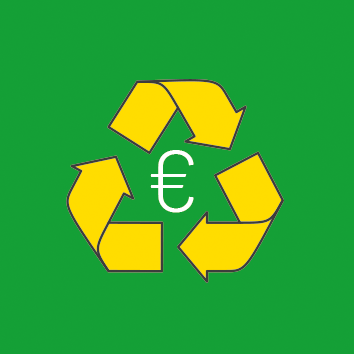
Questions?
We can imagine that you have questions about the waste and raw materials policy, waste separation, waste charges and the environmental pass. This is understandable. That is why we post answers to frequently asked questions on our website.
> Find answers to frequently asked questions
Tips
Less residual waste! How? By avoiding unnecessary waste. If waste does arise, we separate it for reuse or recycling. In this way, we do not waste raw materials and do not deplete the earth. We can only achieve this together. You can help too!
Looking for inspiration to avoid wasting resources? > Discover practical tips and get involved.








